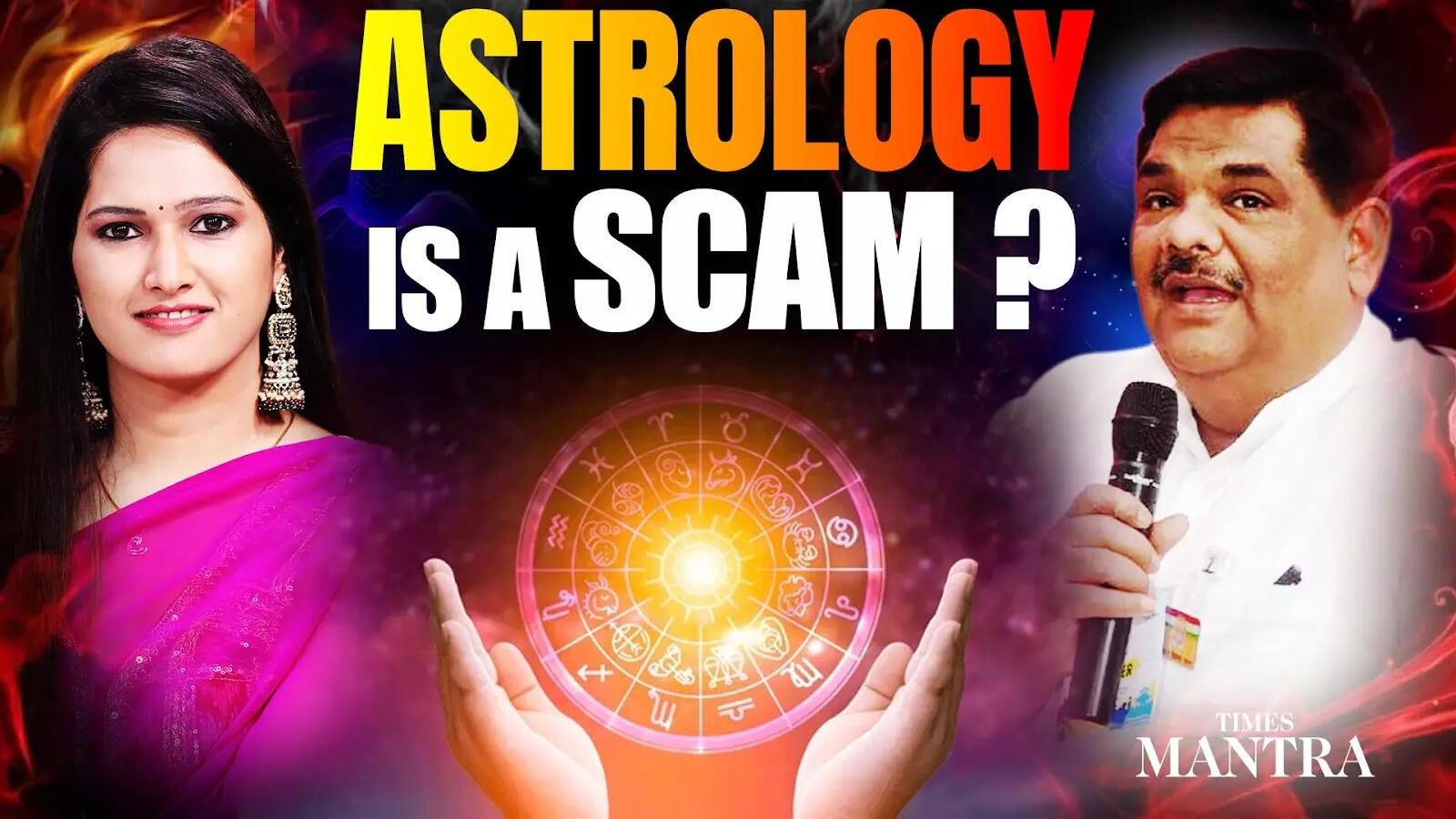Science
Exploring Astrology: Myths and Facts in Science vs. Belief

Astrology, a belief system that suggests celestial bodies influence human behavior and destiny, has sparked debates for centuries. In a recent episode produced by **Times Mantra**, host **Pawan Sinha** delves into the contentious topic of astrology, challenging its validity and exploring its implications in modern society.
The episode, titled “The Truth About Astrology,” presents a critical examination of the claims made by astrologers versus scientific evidence. Sinha seeks to uncover whether astrology is a legitimate science or merely an ancient illusion cloaked in mystique. With an increasing number of individuals turning to astrology for guidance in their daily lives, this discussion is particularly timely.
The episode highlights the historical context of astrology, which dates back thousands of years. Ancient civilizations, including the Babylonians and Greeks, formulated astrological systems that linked celestial movements to earthly events. As Sinha points out, these early practices laid the groundwork for what many people still believe today. Yet, as science has advanced, the foundations of astrology have come under scrutiny.
One of the central arguments presented is the lack of empirical evidence supporting astrological claims. The scientific community generally regards astrology as a pseudoscience, primarily because it lacks the rigorous methodologies that characterize scientific fields. For instance, extensive studies have failed to establish a causal relationship between astrological phenomena and human behavior. Sinha emphasizes the importance of critical thinking, urging viewers to differentiate between scientifically backed facts and anecdotal beliefs.
In the debate, Sinha invites experts from both sides to present their viewpoints. Astrologers argue that astrology provides valuable insights into personality traits and life events, often citing anecdotal evidence. Conversely, scientists stress the need for reproducible results and evidence-based conclusions. The clash of perspectives in this episode aims to illuminate the complexities surrounding belief in astrology.
Moreover, Sinha addresses the cultural impact of astrology in contemporary society. Many individuals, especially younger generations, engage with astrology through social media platforms, often seeking guidance based on their zodiac signs. This trend raises questions about the role of astrology in decision-making processes and its influence on mental health. Are people finding comfort in these beliefs, or are they at risk of relying on unverified information?
As the episode unfolds, Sinha encourages viewers to consider the implications of their beliefs. He posits that separating truth from superstition is crucial in an age where misinformation can spread rapidly. The discussion ultimately serves as a reminder of the importance of scientific literacy in an increasingly complex world.
In conclusion, Pawan Sinha’s exploration of astrology through the lens of science offers a compelling narrative that challenges viewers to reflect on their beliefs. By presenting arguments from both sides, **Times Mantra** fosters a dialogue that invites critical thinking about the intersection of science and belief systems. As the debate continues, it remains to be seen how individuals will reconcile their faith in astrology with the principles of rational thinking.
-

 World4 months ago
World4 months agoSBI Announces QIP Floor Price at ₹811.05 Per Share
-

 Lifestyle4 months ago
Lifestyle4 months agoCept Unveils ₹3.1 Crore Urban Mobility Plan for Sustainable Growth
-

 Science4 months ago
Science4 months agoNew Blood Group Discovered in South Indian Woman at Rotary Centre
-

 Sports4 months ago
Sports4 months agoBroad Advocates for Bowling Change Ahead of Final Test Against India
-

 World4 months ago
World4 months agoTorrential Rains Cause Flash Flooding in New York and New Jersey
-

 Top Stories4 months ago
Top Stories4 months agoKonkani Cultural Organisation to Host Pearl Jubilee in Abu Dhabi
-

 Science4 months ago
Science4 months agoNothing Headphone 1 Review: A Bold Contender in Audio Design
-

 Top Stories4 months ago
Top Stories4 months agoAir India Crash Investigation Highlights Boeing Fuel Switch Concerns
-

 Sports4 months ago
Sports4 months agoCristian Totti Retires at 19: Pressure of Fame Takes Toll
-

 Business4 months ago
Business4 months agoIndian Stock Market Rebounds: Sensex and Nifty Rise After Four-Day Decline
-

 Politics4 months ago
Politics4 months agoAbandoned Doberman Finds New Home After Journey to Prague
-

 Top Stories4 months ago
Top Stories4 months agoPatna Bank Manager Abhishek Varun Found Dead in Well









